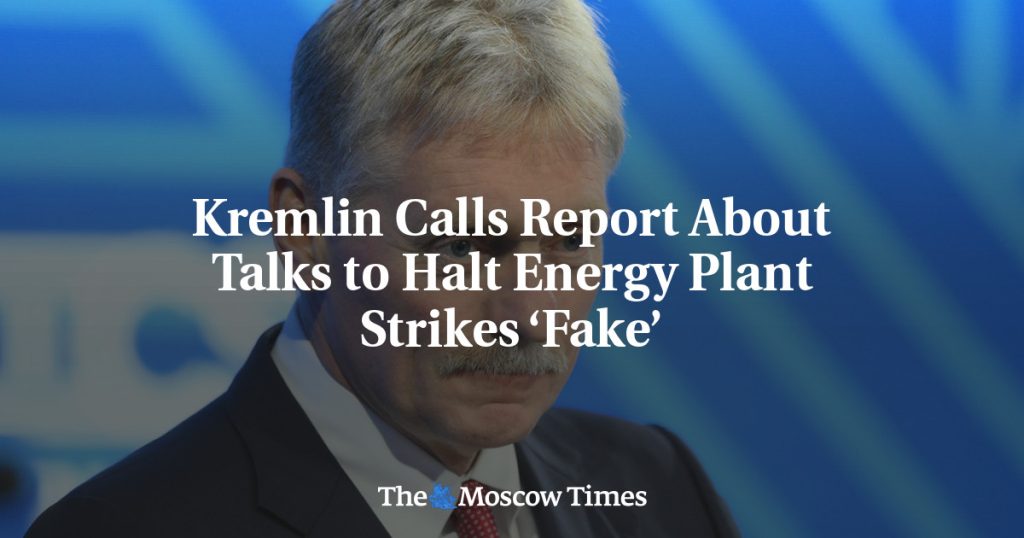The Kremlin has dismissed a report by the Financial Times claiming that Russian and Ukrainian officials are discussing a potential pause on strikes on each other’s energy infrastructure. Kremlin spokesman Dmitry Peskov stated that there is a lot of fake news nowadays and that the report has nothing to do with reality. The Financial Times had reported that Ukraine and Russia are in talks about halting strikes on energy sites, with the discussions being mediated by Qatar. These efforts mark a resumption of previous de-escalation efforts that were abandoned after Ukraine launched its incursion into the Kursk region. A former senior Kremlin official indicated that President Vladimir Putin is unlikely to agree to any deal as long as Ukrainian troops are in Kursk.
An unnamed Ukrainian official claimed that Russian and Ukrainian intelligence agencies had reached an understanding to reduce the frequency of attacks on each other’s energy infrastructure in recent weeks. This alleged agreement comes after Ukrainian President Volodymyr Zelensky stated that Russian attacks had destroyed half of Ukraine’s electricity generation capacity since the winter. Despite the reports of discussions and potential agreements, the Kremlin has been quick to dismiss the idea of any deal being made between the two parties while Ukrainian troops remain in the Kursk region. This indicates that there may still be significant obstacles to overcome in order to reach a resolution on this matter.
The involvement of Qatar as a mediator in the discussions between Ukraine and Russia on halting strikes on energy sites adds an interesting dimension to the situation. The resumption of de-escalation efforts suggests that both parties may be willing to negotiate a temporary pause in hostilities on this particular issue. However, the reluctance of President Putin to agree to any deal while Ukrainian troops are present in Kursk creates a significant stumbling block. The destruction of half of Ukraine’s electricity generation capacity by Russian attacks has added urgency to finding a resolution to this conflict.
It is clear that tensions between Russia and Ukraine regarding strikes on energy infrastructure are high, with both sides allegedly engaging in attacks on each other’s facilities. The reported discussions and alleged agreements between Russian and Ukrainian intelligence agencies indicate a potential willingness to find a way to reduce the frequency of these attacks. However, the statement by the Kremlin that no deal will be agreed upon as long as Ukrainian troops are in Kursk underscores the ongoing complexities and challenges in reaching a resolution. The destruction of Ukraine’s electricity generation capacity by Russian attacks further highlights the urgent need for a solution to this issue.
The involvement of Qatar as a mediator in the discussions suggests an international effort to bring about a resolution to the conflict between Russia and Ukraine regarding strikes on energy infrastructure. The resumption of de-escalation efforts, despite previous abandoned attempts, indicates a willingness on both sides to negotiate. The potential agreement to reduce the frequency of attacks on energy sites demonstrates a possible step towards de-escalation and a temporary pause in hostilities. However, the reluctance of President Putin to agree to any deal while Ukrainian troops remain in Kursk raises doubts about the immediate prospects for a resolution to this conflict.














